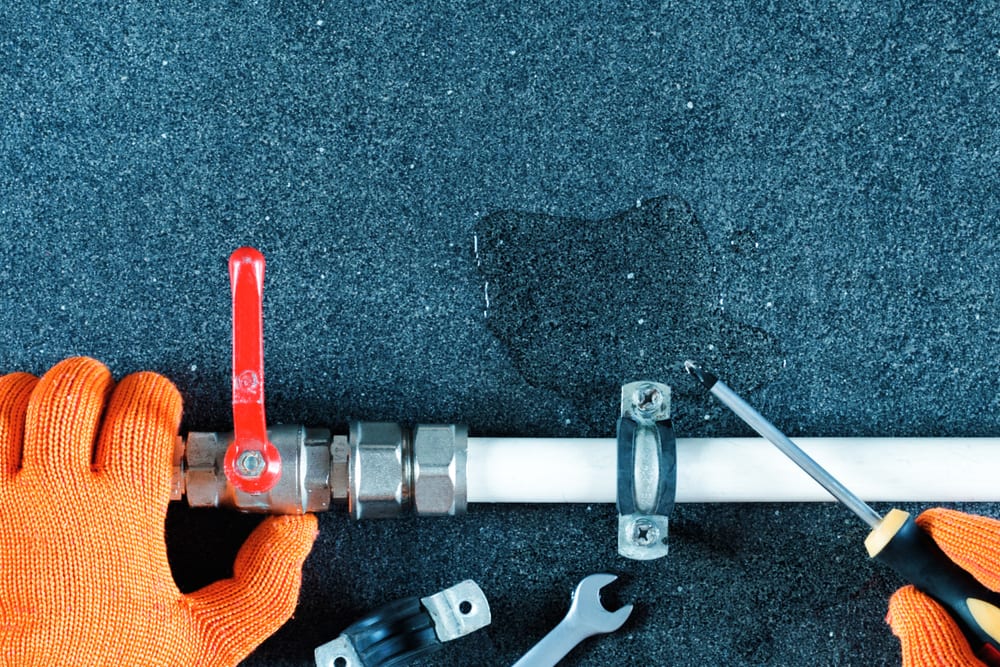Just how to Examine If Your Home Has a Concealed Leakage
Just how to Examine If Your Home Has a Concealed Leakage
Blog Article
They are making a few great points about Top leak detection hacks as a whole in this article in the next paragraphs.

Early detection of leaking water lines can minimize a possible catastrophe. Some tiny water leakages might not be noticeable.
1. Check Out the Water Meter
Inspecting it is a surefire method that aids you discover leakages. If it moves, that shows a fast-moving leak. This indicates you might have a slow leak that can even be underground.
2. Examine Water Consumption
Evaluate your water costs and track your water usage. As the one paying it, you ought to observe if there are any kind of discrepancies. If you identify sudden changes, regardless of your consumption being the same, it indicates that you have leakages in your plumbing system. Remember, your water expense must drop under the same range every month. An unexpected spike in your expense shows a fast-moving leakage.
A consistent boost every month, even with the same habits, shows you have a slow leak that's additionally gradually rising. Call a plumber to extensively examine your residential or commercial property, especially if you feel a warm location on your flooring with piping underneath.
3. Do a Food Coloring Test
30% comes from commodes when it comes to water usage. Test to see if they are running correctly. Drop specks of food shade in the storage tank as well as wait 10 minutes. There's a leakage between the tank and dish if the color somehow infiltrates your dish throughout that time without flushing.
4. Asses Outside Lines
Don't neglect to inspect your exterior water lines too. Must water permeate out of the connection, you have a loosened rubber gasket. One little leak can squander tons of water as well as surge your water costs.
5. Evaluate the circumstance as well as evaluate
Property owners must make it a routine to check under the sink counters and also inside closets for any bad odor or mold growth. These two red flags indicate a leakage so punctual focus is required. Doing regular examinations, also bi-annually, can conserve you from a major problem.
Much more significantly, if you know your home is currently old, maintain a watchful eye on your heating units, hoses, pipelines and so on. Check for stainings and also weakening as many pipelines as well as appliances have a life span. They will certainly additionally naturally deteriorate due to deterioration. Do not wait for it to intensify if you presume dripping water lines in your plumbing system. Call a specialist plumber immediately so you don't end up with an awful mess in your home.
Early discovery of dripping water lines can alleviate a prospective catastrophe. Some tiny water leakages might not be visible. Examining it is a proven means that assists you discover leaks. One little leak can throw away tons of water and spike your water bill.
If you think dripping water lines in your plumbing system, don't wait for it to escalate.
How to Know If Your Home Has a Hidden Leak
Water Meter Reveals Inexplicable Water Usage
If you’d like to test whether or not there’s a leak somewhere in your home, you can do this using your water meter. Here is how to conduct the test:
Don’t use any water in your home for at least 30 minutes; this also means not turning on faucets or water-using appliances.
Go outside, and check your water meter for activity.
If your water meter shows that there was activity, even though no one was using any water, this proves that there is a leak in your home.Visible Mold or Mildew Growth
Leaks behind walls create moist, dark environments that allow mold and mildew to grow and thrive. Eventually, you might see mold growth forming on the wall closest to a hidden leak.
If mold is growing in an area that receives a high amount of moisture, such as a bathroom, it may simply be an indication that better ventilation is needed. However, if you see mold growth on a wall or the ceiling in an area where you would not expect, you probably have a hidden leak.
Musty, Mildew Odor
Sometimes you might not be able to see the mold or mildew that is growing as a result of a leak. However, the smell can give the problem away just as easily. If you catch a whiff of something musty, there’s a good chance that old water is collecting somewhere in your home that you can’t see.
Stained/Warped Walls, Ceilings, or Floors
When your home soaks up water, a variety of red flags can become visible, including ceiling stains, bubbling drywall, warped walls, and sagging floors. While these issues can be caused by excess humidity, they can also be signs that a pipe or plumbing connection has started leaking behind your walls.
Inexplicably High Water Bill
After a while, you get a general sense for what your water bill should be. If you own a pool or sprinkler system, your bill will tend to be higher during summer. However, if you receive a water bill that seems especially high, and you can’t figure out what caused it, then you may have a hidden leak somewhere that’s increasing your bill.
https://www.plumbingjoint.com/blog/2019/july/how-to-know-if-your-home-has-a-hidden-leak/

I am very fascinated by Leaking water lines and I'm hoping you liked my post. Sharing is nice. Helping others is fun. I am grateful for your time. Visit again soon.
Report this page